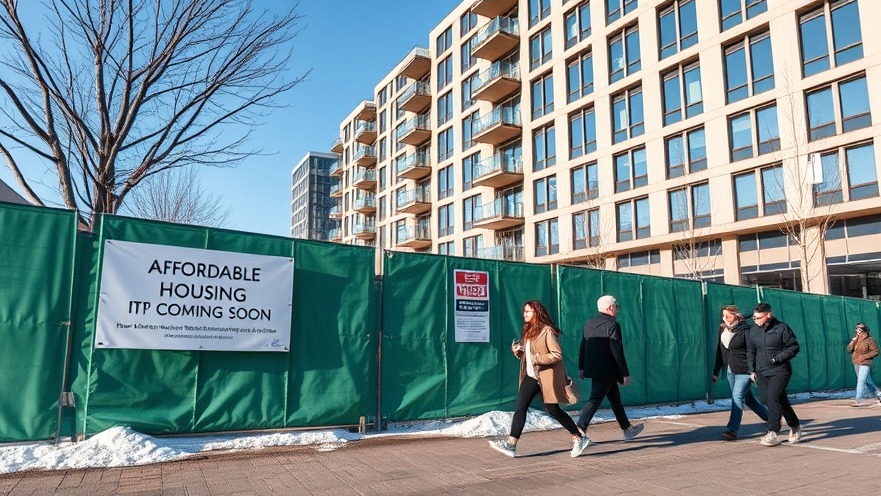
New York Sets a Landmark Precedent for Sustainable Building
In a move hailed as a significant step for environmental sustainability, New York is now the first state in the U.S. to mandate that all new buildings be constructed entirely electric, effectively eliminating connections to fossil fuels like gas. This rule, part of the All-Electric Buildings Act, was finalized in July 2025 and is poised to reshape the construction landscape in the state.
Understanding the All-Electric Buildings Act
The All-Electric Buildings Act reflects New York's commitment to combat climate change, addressing emissions from buildings which account for 31% of the state's total emissions. Under this new mandate, residential buildings up to seven stories and commercial buildings up to 100,000 square feet must adhere to all-electric construction if their building permits are approved after December 31, 2025. Larger buildings will have until 2029 to comply, creating a phased transition towards sustainability in building practices.
Why This Matters for Hospitality Professionals
For boutique hospitality professionals—including small hotel owners, Airbnb hosts, and eco-lodge operators—this legislation is pivotal. Not only does it help reduce a hotel’s carbon footprint, contributing to broader climate awareness and sustainability goals, but it can also translate into significant cost savings. Studies suggest that this move could reduce energy bills for New Yorkers, with savings of nearly $5,000 per household over 30 years. This is vital for hospitality operators looking to balance cost and eco-friendly practices.
Potential Savings and Benefits
The New Buildings Institute indicates that building 100% electric single-family homes could also lead to a reduction in overall construction costs, potentially saving anywhere from $7,500 to $8,200. For boutique hospitality businesses, this could open a door to more affordable sustainable building practices without compromising quality or comfort for guests.
The Legal Landscape
Despite the enthusiasm, the All-Electric Buildings Act may face challenges. Industry groups have sought to block its implementation, fearing the financial implications on their operations. Conversely, advocates argue that prioritizing community health and environmental concerns over corporate profits is paramount. This ongoing legal tussle highlights the tension between fossil fuel reliance and progressive environmental policies.
Connecting with Sustainable Initiatives
For those in the hospitality sector, this is a clarion call to align with the growing movement for sustainability. Many consumers today prioritize eco-friendly accommodations when choosing where to stay. As a hospitality professional, adopting practices such as chaos gardening or offering amenities free from microplastics may not only become important to align with new regulations but also serve to attract a clientele that values a commitment to protecting our planet.
A Future Worth Building
New York’s decision is not just a policy change; it’s a shift in how we view our responsibilities toward the environment and future generations. As we witness increased occurrences of climate-related disasters, measures like those taken in New York demonstrate how legislative changes can spur significant actions in reducing the carbon footprint of the built environment. This precedent may inspire other states to follow suit, creating a ripple effect across the nation.
Ultimately, for boutique hospitality operators and eco-conscious entrepreneurs, understanding and adapting to these regulations is a vital step toward sustainable growth. If you're looking to adapt your business model to these changes, consider exploring green building certifications, renewable energy sources, and incorporating sustainable practices in your operations. By embracing these opportunities, you position your business not only as a leader in eco-hospitality but also as a proactive participant in the fight against climate change.
 Add Row
Add Row  Add
Add 




Write A Comment